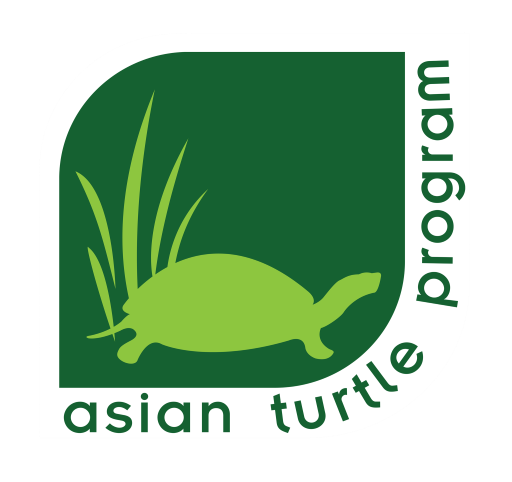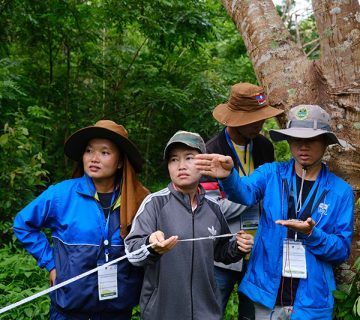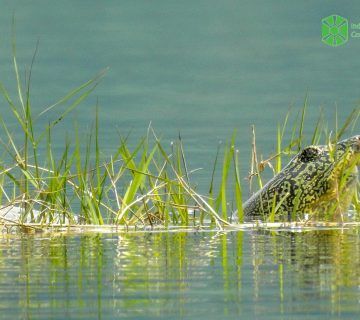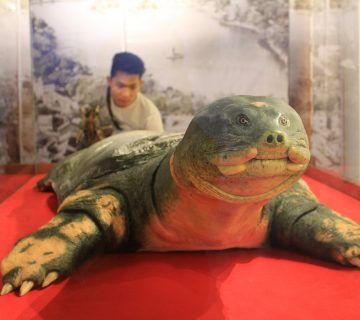The Spatial Monitoring and Reporting Tool (SMART) is an example of advanced technology in the field of wildlife conservation. Developed by conservationists, the software has many features for monitoring habitats and species and recording observations of threats (such as logging occurrences or traps encountered). A GPS-enabled smartphone with software installed can save routes taken by patrol teams, such as a forest ranger, for data to be uploaded into a database for analysis of data to help with the management of the protected area or focal species. According to the Centre for Technology and Nature Conservation (CTNC), as of the end of 2020, SMART has been applied in more than 1000 protected areas with high biodiversity in over 65 countries worldwide. In Vietnam, the software is gaining popularity among conservation organizations, protected area management and rangers.
![Smart training 02 Oct 21 Dong Mo Lake, Kim Som com, Son Tay dis, Hanoi city [NT Thang-R] (136)](https://asianturtleprogram.org/wp-content/uploads/2022/11/Smart-training-02-Oct-21-Dong-Mo-Lake-Kim-Som-com-Son-Tay-dis-Hanoi-city-NT-Thang-R-136-1024x680.jpg)
![Smart training 30 Sep 21 Hanoi office [NT Thang-R] (148)](https://asianturtleprogram.org/wp-content/uploads/2022/11/Smart-training-30-Sep-21-Hanoi-office-NT-Thang-R-148-1024x768.jpg)
From the 30th of October to the 2nd of November 2021, the Asian Turtle Program (ATP) of Indo Myanmar Conservation (IMC) in collaboration with the CTNC organized a training course for all staff involved in the Rafetus Project, for the Swinhoe’s Softshell Turtle (Rafetus swinhoei) for which only 3 living animals are currently confirmed and for which a project on Dong Mo Lake and Xuan Khanh Lakes, Hanoi, Vietnam, have been monitoring two known animals over the past 14 years. The training on SMART software and data collection will allow the collection of more valuable information to aid a better understanding of animals at the sites and help with conservation planning.
We would like to thank Mr Khanh – CTNC deputy director and Ms Linh – CTNC communication officer for delivering lectures and guiding Rafetus project staff to use the application! We also thank Cleveland Metroparks Zoo, the Critical Ecosystem Partnership Fund (CEPF) and the International Union for the Conservation of Nature (IUCN) for supporting this activity.








No comment